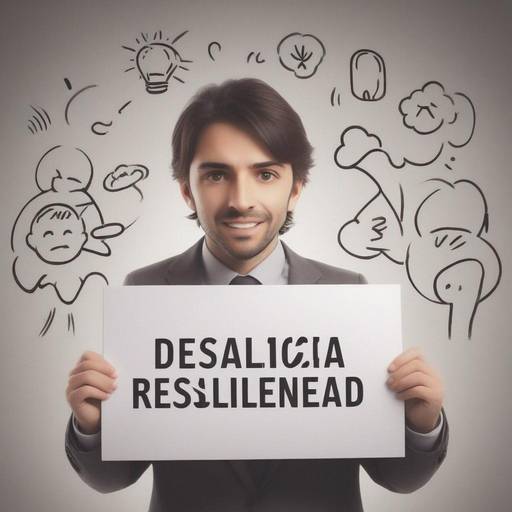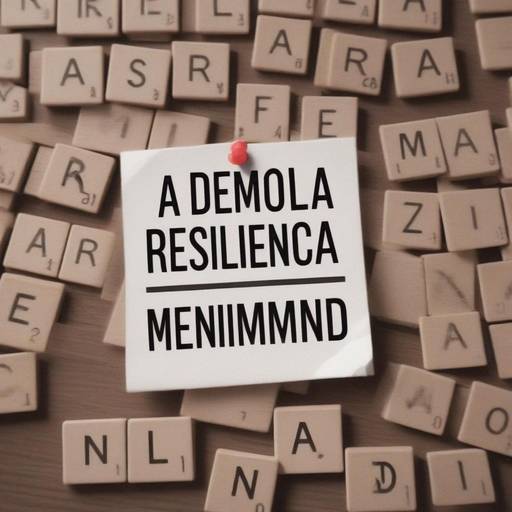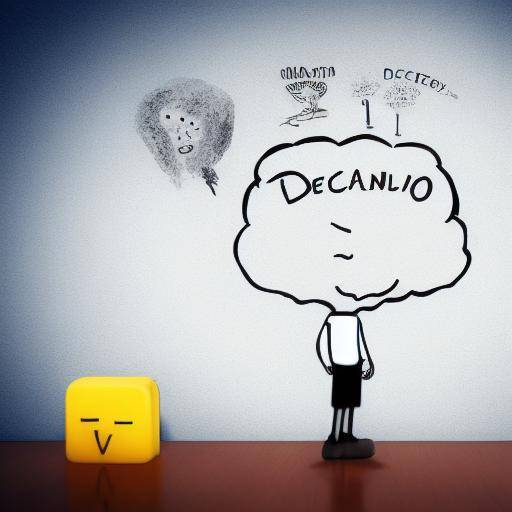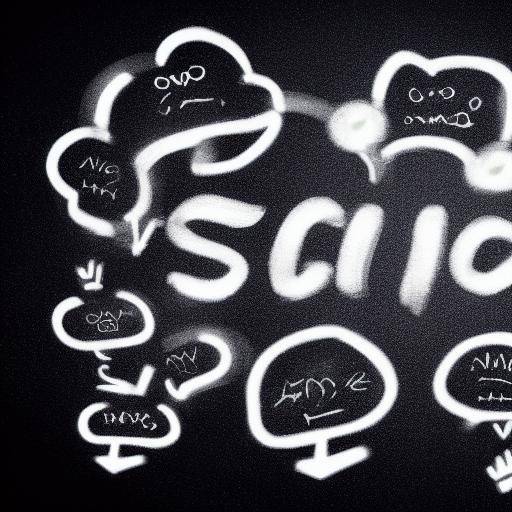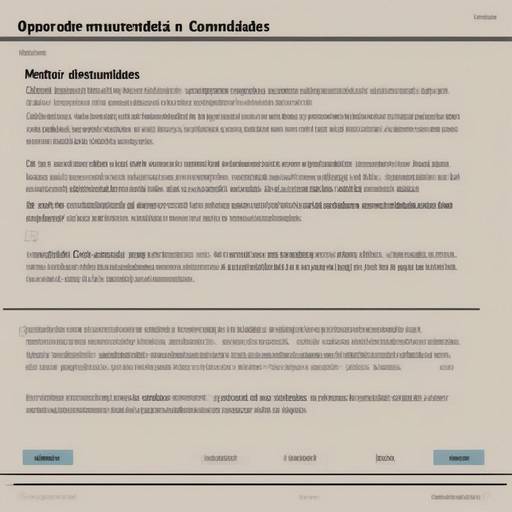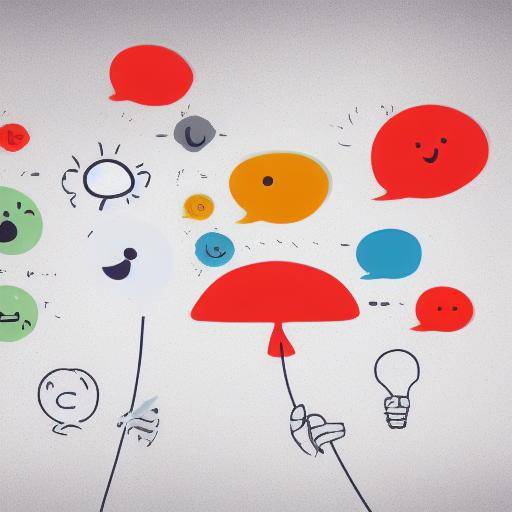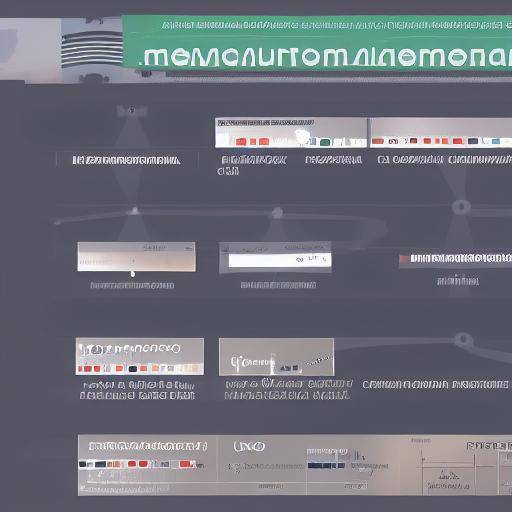
Introduction
In life, we all face challenges and adversities that test our ability to overcome obstacles. Resilience, emotional intelligence and personal overcoming are fundamental elements for dealing with and coping with these situations. In this article, we will explore in detail the relationship between resilience and emotional intelligence, as well as strategies to develop these skills in order to achieve greater emotional and personal well-being. We will discover how these strengths can be fundamental to confront the challenges of daily life and how through the development of emotional intelligence we can enhance our resilience.
History and Background
Resilience has been studied for decades, although its concept has evolved over time. It is considered that its origins date back to the psychology of development, where the ability of some individuals to overcome adverse circumstances was observed. On the other hand, emotional intelligence became popular thanks to the work of psychologist Daniel Goleman in the 1990s, who proposed that our emotions play a crucial role in personal and professional success. Since then, this concept has been researched and developed, demonstrating its relevance in the field of resilience and personal overcoming.
Detailed Analysis
Resilience, understood as the ability to adapt positively to difficult situations, and emotional intelligence, the ability to recognize, understand and manage our emotions, are intrinsically linked. Resilience not only involves overcoming challenges, but also learning and growing from them. On the other hand, emotional intelligence allows us to manage stress, regulate our emotions and maintain healthy relationships, fundamental aspects to successfully face adverse situations.
Comprehensive review
To develop resilience through emotional intelligence it is important to practice emotional self-management, identify our emotions and thoughts, and establish positive relationships that strengthen our social support. Also, learning to manage stress, foster empathy and cultivate assertivity are key skills to enhance resilience through emotional intelligence.
Comparative analysis
Resilience and emotional intelligence share a common goal: to promote emotional well-being and the ability to face challenges. Emotional intelligence provides us with the tools necessary to strengthen our resilience, as it trains us to face stressful situations, manage our emotions and maintain healthy relationships, fundamental aspects to overcome obstacles.
Practical Tips and Accessible Recommendations
Here are some practical tips for developing resilience through emotional intelligence:
- Practice emotional self-consciousness through meditation and personal reflection.
- Promote empathy towards oneself and others to develop stronger relationships.
- Learn to manage stress through breathing and relaxation techniques.
- Cultivate assertivity to express our emotions and needs in a proper way.
Industry Perspectives and Expert Reviews
According to experts in psychology and personal development, the combination of resilience and emotional intelligence is a determining factor in the ability to face and overcome challenges. In addition, in a working context, these skills are increasingly valued, as they contribute to creating healthier and collaborative work environments.
Case studies and practical applications
There have been numerous cases of individuals who, through the development of emotional intelligence, have managed to overcome challenging and adverse situations, demonstrating how strengthening this ability can enhance resilience in everyday life.
Future Trends and Predictions
With the growing interest in personal development, resilience and emotional intelligence are expected to be increasingly relevant in various areas, from work to staff. More integration of these skills is seen in training and development programmes, as well as their application in therapeutic and educational contexts.
Conclusion
In short, resilience and emotional intelligence are two fundamental skills that, combined, provide us with the tools necessary to face challenges, manage stress and maintain healthy relationships. Developing these skills can strengthen us not only at an emotional level, but also at a personal and professional level, allowing us to overcome obstacles successfully and grow from them.
Frequently asked questions
What is resilience and why is it important to develop this skill?
Resilience is the ability to adapt positively to difficult situations, overcome and learn from them. Building resilience is critical to successfully confronting challenges and sustaining lasting emotional well-being.
How does emotional intelligence relate to resilience?
Emotional intelligence provides us with the tools to manage our emotions, maintain healthy relationships and manage stress, fundamental aspects to strengthen our resilience and successfully confront difficult situations.
What are some strategies to develop resilience through emotional intelligence?
Practicing emotional self-management, fostering empathy, learning to manage stress and cultivating assertivity are some of the strategies to develop resilience through emotional intelligence.
What is the importance of resilience and emotional intelligence in the workplace?
In the working environment, resilience and emotional intelligence are valued skills that help create healthier, collaborative, and more effective working environments.
How can companies foster resilience and emotional intelligence among their employees?
Businesses can promote resilience and emotional intelligence through personal development programs, training in emotional skills and creating work environments that foster emotional well-being.
What is the impact of resilience and emotional intelligence on decision-making?
Resilience and emotional intelligence influence the ability to make conscious decisions, based on the proper management of emotions and adaptation to varying circumstances, contributing to a more solid and effective decision-making.
With these FAQs, it is sought to provide a deeper understanding of resilience, emotional intelligence and its interrelationship, as well as to provide guidance for its development and application in different contexts.
In short, the development of resilience through emotional intelligence is a fundamental process to strengthen our ability to face challenges and grow from them. By understanding the importance of these skills and practicing strategies for their development, we can enhance our emotional and personal well-being, driving our growth and overcoming in all aspects of life.









